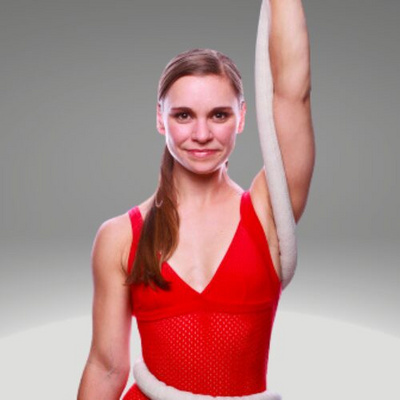Underbelly: Exposing the Success of Circus at the Edinburgh Fringe Festival
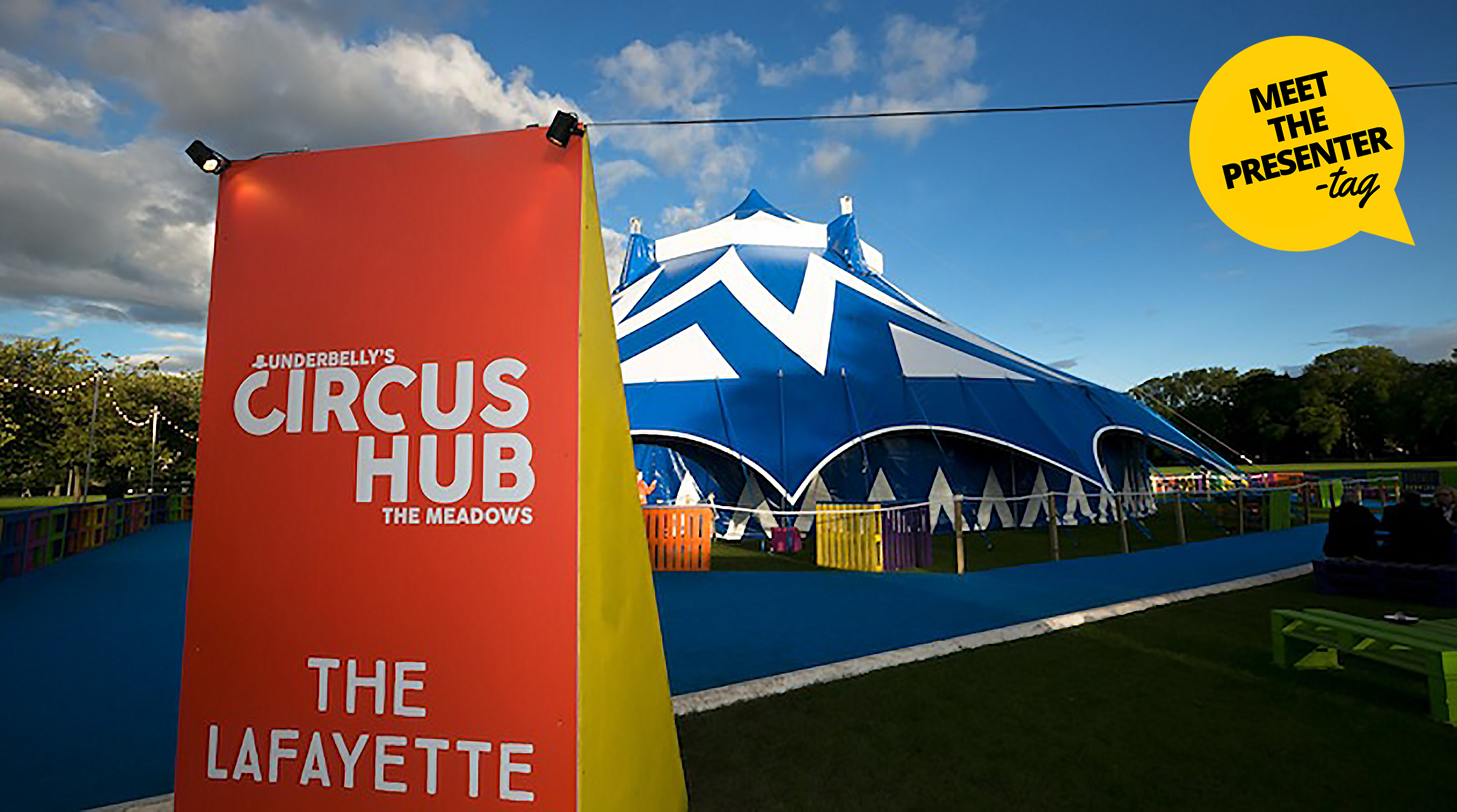
In our ongoing series called Meet the Presenter-Tag, we will explore the world of circus arts programming with different presenters and programmers from around the world, delving in to the particulars of their region, and learning more about their specialty and the industry standards that they help to develop.
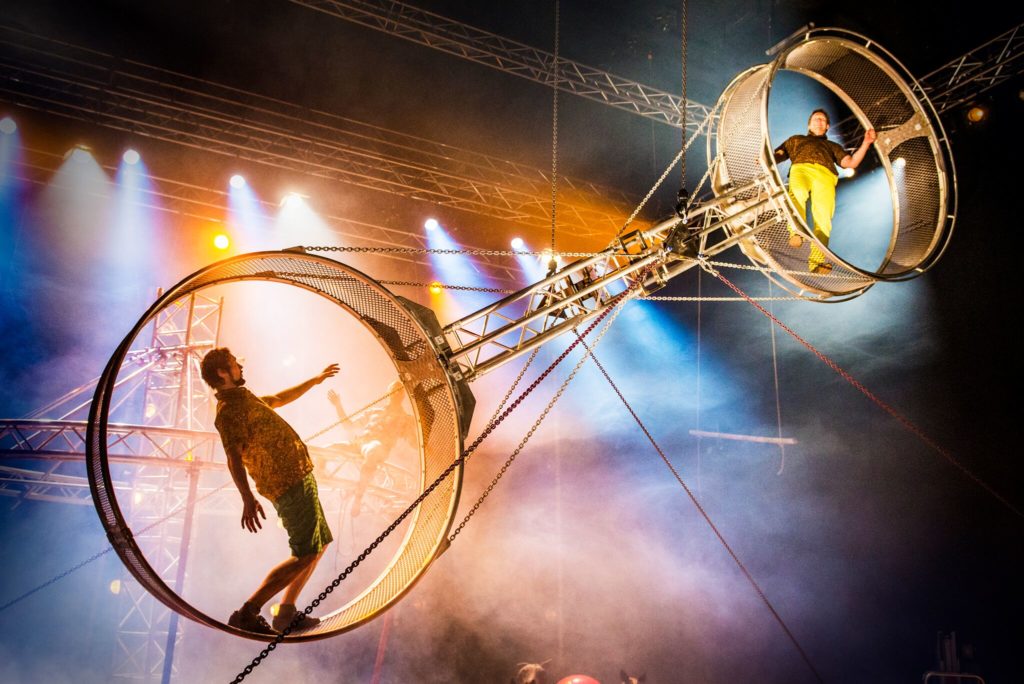
Don’t let the playful purple cow fool you, Underbelly, a UK based entertainment company, is a serious player in the future of circus programming. With the masterful guidance of the company’s Festival Programmer and Producer, Lauren Eisinger, circus has not one, but two permanent homes at the most prestigious summer live art festival in the world, the Edinburgh Fringe Festival. Lauren and I spoke in early July while she was at Montréal Complètement Cirque and full of vim and vigor for Edinburgh’s 2019 season. We spoke about how Underbelly’s Circus Hub, comprised of the Lafayette big top and The Beauty Spiegeltent, are specifically dedicated to the technical and artistic needs of circus artists and their productions. Just 5 years old, the Circus Hub has already made a significant impactful on the festival.
Madeline Hoak: Why is it important for Underbelly to program circus at the Edinburgh Fringe Festival?

Lauren Eisinger: I think circus absolutely has a place as its own art form, as a legitimate genre alongside theater, comedy, etc., at Edinburgh. And then there’s the audience appetite for it! We found it was growing as we programmed more of it, so Underbelly started the Circus Hub. We were finding that people wanted to see circus, and there was no central space for it at Edinburgh. [Circus Hub] opened a way to bring more and more — a sort of cross section of the art form — to the Edinburgh audience. From an audience perspective and a top down look at what an arts festival can or should be, it’s important to have circus.
MH: Now that there are dedicated spaces for circus at Edinburgh, what has the audience response been?
LE: We find it’s amazing, and it’s taken off because it’s all word of mouth. It takes a few years for the audience to realize that there’s this Hub they can visit that’s not playing what you find at the usual stages… Now we find that audiences are coming to Circus Hub without necessarily knowing what they want to see but knowing that the work is good. It’s great to see that trust from the audience.
The Circus Hub is more technically adept and caters to circus, so the shows that we can program at the Hub really can appeal to different kinds of audiences. We’ve gotSuper Sunday [by Race Horse Company] this year, which is this mega work that one other venue, off the top of my head, maybe two, could host. But because of the flexible space at Circus Hub, we can bring it to the festival, and the audience always eats it up. When Circa was here before withHumans in 2017, it almost sold out entirely right away. The audiences could not get enough. They may not be self-professed circus fans, but they come to trust the venue and the programming and they say, I’ll give that a shot, and they come to find that they really like the work.
A lot of the best work that happens is on that very fine line between bravery and curiosity. Go be adventurous!
MH: That’s ideal, isn’t it? When audiences trust that any show at your venue will deliver great quality, value and the thrills. How do you cultivate that trust in your audience?
LE: It’s important to not just show one kind of circus, but to showcase the breadth and the depth of the genre… Some shows are more theatrical, some are more entertainment focused, some make you laugh or cry, some of them have more of a story. And even though Circus Hub is a relatively new space, the [Underbelly] brand has an identity that is quite established.
And then it’s about putting in the hours. I go to see hundreds of shows, and I’m half watching the show and I’m also watching the crowd. Who’s there? How are they reacting? When is there a golden moment in the piece? Who are the biggest fans? I watch the energy, who’s smiling and clapping the loudest. The more we can program shows that we know will sell really well we know that we will…
MH: You mentioned the technical capabilities of Circus Hub. Do you have advice for how programmers and venues without those capabilities can still program circus?
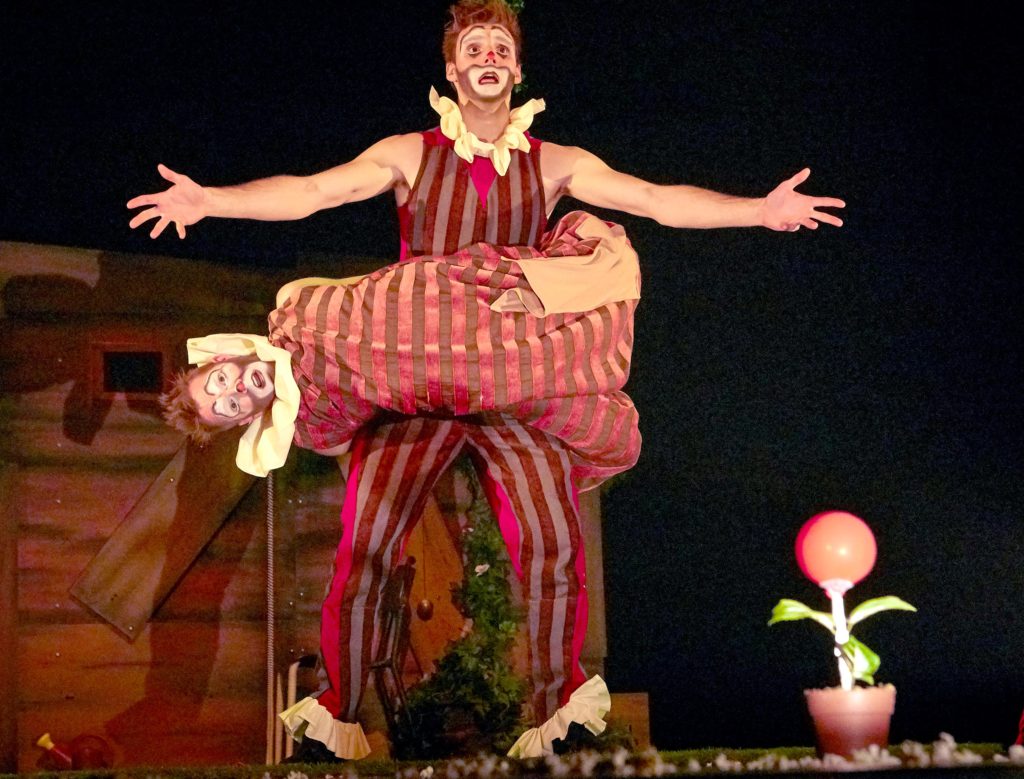
LE: I would say approach it with your sense of curiosity and wonder. Because often things are not nearly as complicated as they seem…Sometimes shows have different, scaled down versions. They might prefer to have ten aerial points, but actually there’s a version of the show that can happen with only three…And circus artists are an incredibly inventive bunch. It’s definitely always worth having the conversation. Never compromise the artistic rationale of the work or integrity of the piece, but do not cut off the conversation for technical reasons…And if you can’t present the work, then at least you have an understanding of what it takes so you can do something like that in the future. Circus is a huge genre, and to not have the conversation would be detrimental. So I would say, just open your mind to the possibilities, and go in and have a chat.
MH: What are your favorite festivals to attend to seek out circus shows?
LE: I love Edinburgh because of the multitude of different spaces, the things that people are trying out and the way that circus is creeping into other genres and making hybrid shows. Also because so many people are there and able to meet up and have conversations. Often as programmers, we are following a company’s work before we connect. We might see a company as they are on tour and we can connect with them [in Edinburgh]. We’ve seen the work develop through residencies and then it’s become the final thing. Edinburgh is great for having those conversations and because there’s work in all different genres.
I’m loving Montreal because it’s circus paradise! And again, it’s all about conversation because everybody’s here for the same work and to exchange ideas.
I love Australia. I’m Australian, so I’m biased! Australia has this great spirit of giving it a go, and I think that’s something that we see in the work down there as well. It’s great to touch base at the Adelaide Fringe to see what emerging companies are doing.
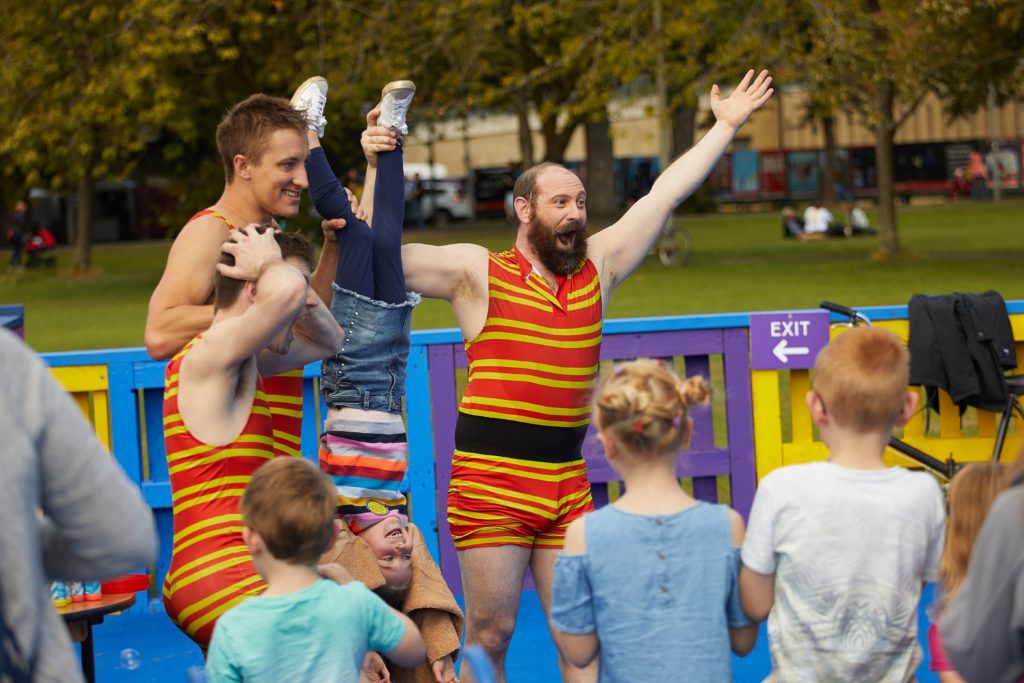
ME: Circus Hub has already been so successful and is growing. Do you have a vision for how the Circus Hub “tree” will continue to branch out into the future?
I used to try to predict the tree and it constantly shattered my predictions in the best way!… Circus, as an art form, has such an inventive spirit, and that’s why it’s so difficult to say exactly where things are going. It’s driven by imagination and evolves so rapidly. There are so many different iterations of what circus can be and ways to explore the boundaries of what the art form can do… At the moment our desire is to invite our venues and spaces to see the things that the artists are working on or need to support their work in order to bring their work to audiences. With that, I think we will definitely see the growth of audiences and the ambition of our artists.
MH: Is there anything else that you would like our Circus Talk readers to know?
Let’s be curious and adventurous! So often we get scared of our own ideas — as audience members and presenters and artists — and we don’t allow ourselves to do the bigger things that we can. A lot of the best work that happens is on that very fine line between bravery and curiosity. Go be adventurous! Circus is constantly evolving and constantly surprising us.
Underbelly’s Circus Hub at the Edinburgh Fringe Festival hosted over a dozen circus productions this summer from all over the globe. Be sure to keep your eye out for next year’s line up!
All photos courtesy of Underbelly
Editor's Note: At StageLync, an international platform for the performing arts, we celebrate the diversity of our writers' backgrounds. We recognize and support their choice to use either American or British English in their articles, respecting their individual preferences and origins. This policy allows us to embrace a wide range of linguistic expressions, enriching our content and reflecting the global nature of our community.
🎧 Join us on the StageLync Podcast for inspiring stories from the world of performing arts! Tune in to hear from the creative minds who bring magic to life, both onstage and behind the scenes. 🎙️ 👉 Listen now!
